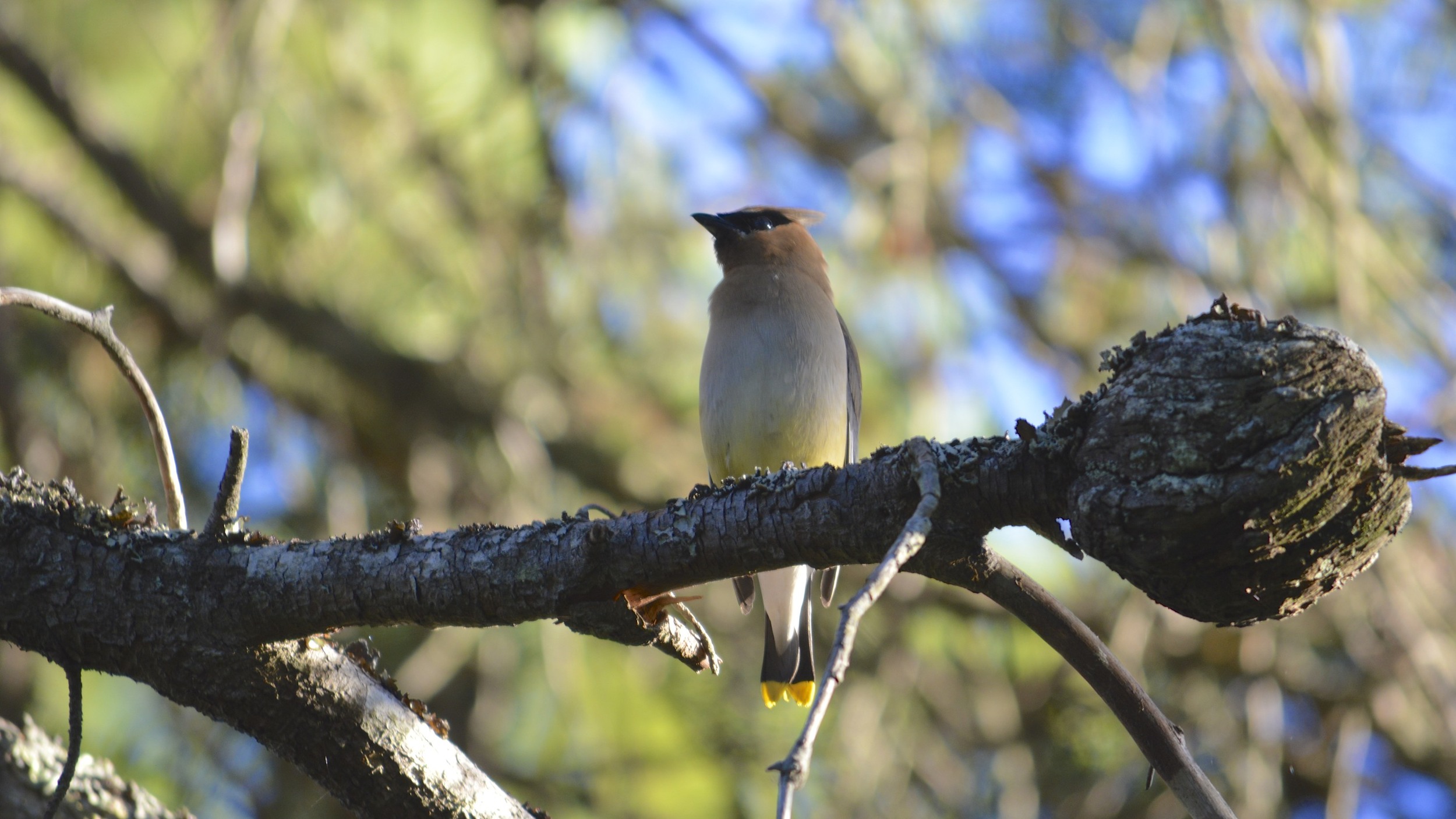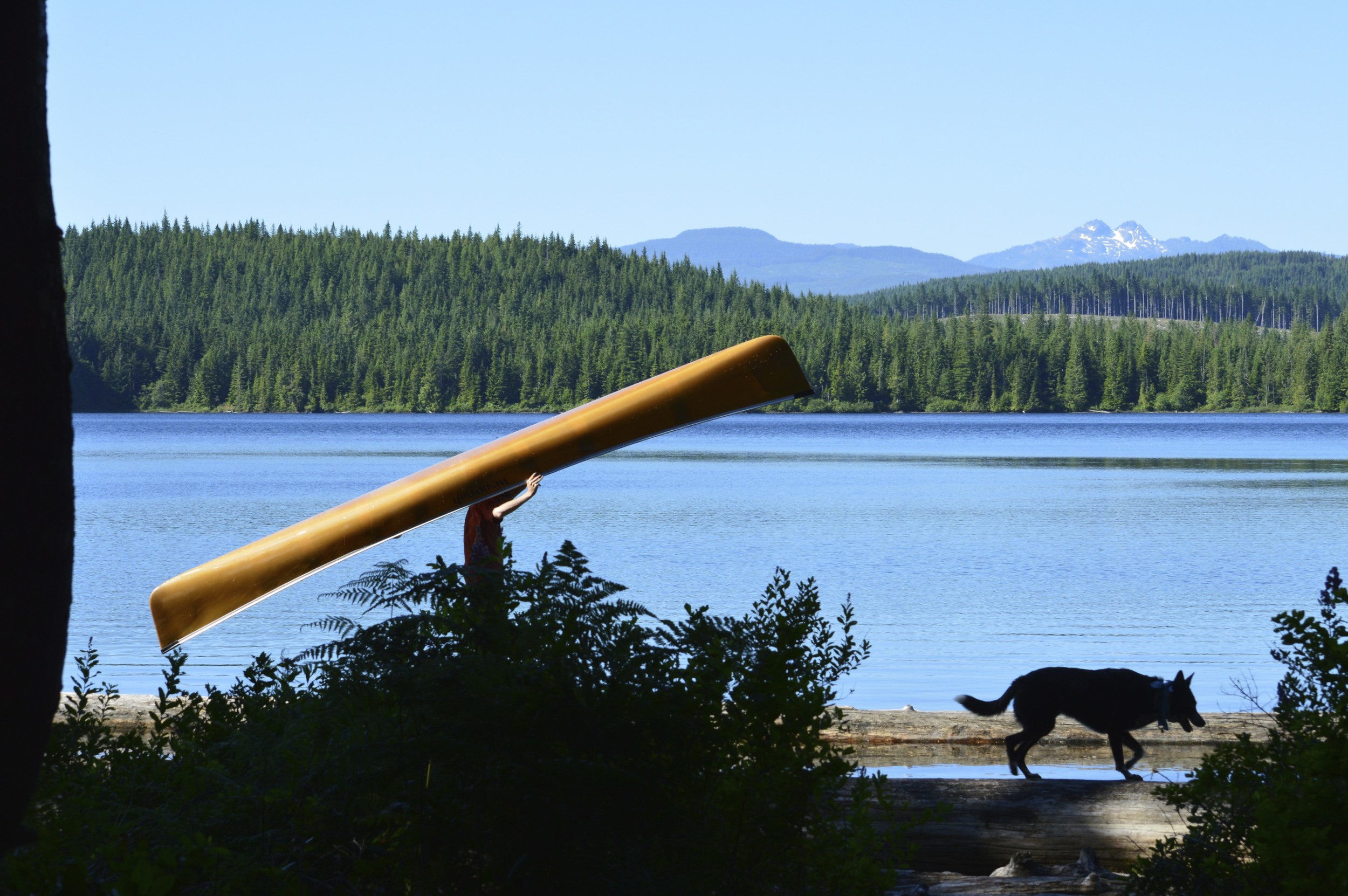The FDA has approved two options to protect infants against RSV (respiratory syncytial virus) this season. Here’s what we know about these so far.
The Delta Variant in Children
We’ve been hearing many concerns from parents about the delta variant in children, especially in light of school starting back up. Is it safe for children to be around other children? Go to school?
Generally speaking, if eligible members of your family are vaccinated and you follow public health guidelines, then yes it is safe. While we have been seeing an increase in positive test results in children since delta has been going around, most kids are still negative and it’s extremely rare for healthy children with vaccinated parents to fall seriously ill from the virus (I’ll get to kids with pre-existing conditions in a minute). Most importantly, nearly all of the children admitted to the hospital here in Portland (delta or not) live with an unvaccinated parent.
The unvaccinated parent is key. That suggests that for kids to get seriously ill from the virus, they need a fairly high initial viral loading. This doesn’t easily occur in most kid-to-kid settings, but can occur if there is an unvaccinated adult whom they live with. It’s a confined space for prolonged periods day and night without masks, sharing food & drink, surfaces, bathrooms, etc. There’s also a good chance the unvaccinated adult has not been social distancing or wearing masks, so they’re likely to bring home a higher viral load. This means the child gets a “dose” of the virus so overwhelming their immune system has no time to respond, and this is the recipe required to get children sick enough to be hospitalized from this virus.
When you follow general public health guidelines, and the eligible adults in your circle are vaccinated, the risk is much lower. Exposures outside the family tend to be less intimate, less duration, and from other children or vaccinated adults. Sure, one of these exposures could be technically contagious, but neither tend to spew as large a viral load. So the chance of passing on extremely large quantities of virus is slim, and that’s what matters. Ultimately, most kids in these settings either never catch it (most of our tests even after exposure are NEGATIVE), or catch such a small viral load that they either have no symptoms or recover at home quickly from mild symptoms (like a cold or flu illness).
So it may help to rephrase the question from “is there a chance my child could catch COVID/delta” (sure) to “is there a chance my child could come to harm from COVID/delta” (extremely unlikely if your family follows public health guidelines).
Take home point: a child’s safety at home appears to be more telling of their risk than their exposures from peers and school. If you’re following public health guidelines yourselves, and your community is too (eg teachers and playdate parents are vaccinated), great job! Your kids can go to school, see other children, and you have very little to be concerned about or do beyond following public health recommendations. But if you aren’t being safe or haven’t gotten the vaccine yourself, then it’s home you need to worry about, not school.
What risk is acceptable? Throughout history there have always been risks of kids interacting together - flu, pneumonia, etc. We have always put kids together anyway because children going to school and spending time with other children is a truly critical developmental need. So critical that it should only be halted if there is an imminent threat to their health concerning enough to override this critical need. At this point, we are not seeing a level of illness in children outside the range of what other illnesses have caused in previous years when everyone felt comfortable with kids playing together.
Other common questions:
What about long term effects of catching it or MIS-C? This should absolutely be taken into account when we make decisions about level of community exposure we’re comfortable with. Without being able to see the future, we have to look back at what we know historically from other diseases as well as what we’re seeing presently from COVID and make our best deduction about what this risk might be. We do know that MIS-C does occur, most commonly in school-aged children, but it’s rare. There have also been reports of “long COVID”. But we also know that other viruses can cause inflammatory reactions and trigger autoimmune states, too. And with less of those around right now, the risk of having such a consequence on the whole this year (including COVID) does not appear to be much different from the risk of long term illness-related complications would be from various infections on any other year. Pediatricians have been treating such types of complications from various infections for years, it just hasn’t been in the spotlight until a new virus comes on the scene and makes headlines.
Should my eligible teen (12+ years) get the vaccine? Yes.
Should I lie about my 11 year old’s age to get the vaccine early before it’s approved? No. We need to make sure the benefits outweigh the risks and also confirm what dose is best tolerated and most effective in this new age group.
When will the vaccine be available for children less than 12? We’re hoping soon this fall, and we will announce once it is ready. Note that it needs to go through both FDA approval AND be recommended by the ACIP for administration for all teens. Approval (it can legally be used) isn’t the same as recommendation (it should be used).
What about children with pre-existing medical problems? Children with pre-existing medical problems may be at risk for complications of infectious illnesses, including COVID. But this risk would not be specific to COVID, it would be just as much from other things such as the flu. So yes COVID should be avoided for these children, though that shouldn’t actually change that much for you given that major caution would already be warranted for any respiratory infection. In other words, there probably aren’t new precautions purely due to COVID that they shouldn’t already be following for every other dangerous respiratory virus out there. With that said, this may act as a reminder to families that there are actually serious things out there, and if you haven’t been taking things that seriously, maybe this is a good reminder to do so.
Should my child wear masks when playing with other children? This depends on the context. Of course wearing a mask is always safer than not. However, it is also hard to get some kids to comply, difficult with sports, and can make it harder for them to connect more intimately with their peers such as reading social expressions. In general, for preschool-aged children the risk is so low that if your child and the other children’s parents are vaccinated it’s probably fine to let them play together without masks. Their risk of catching it or getting sick doesn’t appear to be any greater than a vaccinated adult, who we do allow to be together without masks. School-aged children do have a bit greater chance of catching it and of getting sick, so it would be ideal for them to wear masks when interacting with unvaccinated people outside your family until your child is able to get the vaccine.
Kids 12 and up can now get the COVID vaccine! Here's how.
Beginning today (Thursday May 13th), everyone ages 12 years and older in Oregon can now get vaccinated for COVID-19. This is excellent news, and we encourage all families with children ages 12 and up to get their vaccine as soon as possible. Due to the significant challenges in storing the Pfizer vaccine in small clinics, at this time we recommend you schedule at the Convention Center site as soon as possible. While we will offer the vaccine here in the near future, the Convention Center site is able to accomplish that volume more quickly and efficiently, and that’s what we feel is most important right now. Plus, they do a great job!
As of this writing they are open for walkins on certain days including today, or you can schedule an appointment. Check their website for hours and info. We will post an update on our blog as soon as the vaccine is available here. Stay tuned!
Children ages 16 and up can now get COVID vaccine in Oregon
Beginning April 19th, 2021, everyone ages 16 years and older in Oregon can now get vaccinated for COVID-19. As of right now, due to the significant challenges in storing the Pfizer vaccine vaccinations are still primarily managed via Oregon Health Authority and administered at public vaccination sites. (See our previous blog post about what’s expected to happen next with pediatric vaccines in the future, including when younger ages should start to be able to get it).
To check eligibility for and register for a COVID vaccine appointment go to getvaccinated.oregon.gov.
Coronavirus Vaccine in Children
Pfizer recently announced that their vaccine is extremely effective in children ages 12-15, and studies in younger children are underway. This is exciting! You may be wondering what this means in terms of getting your children the vaccine, including when it will be available and where they will be able to get it.
The answer to this is there are many additional steps that need to happen before children will start receiving the vaccine. Firstly, studies need to not just be completed but also reviewed by the FDA, and then the CDC/ACIP also has to conclude based on the available data if it is clinically recommended in children and at what time frame, what ages and what dosages, or if more data is needed first. Then, there needs to be adequate supply for the highest risk people to receive the vaccine before it is opened up to lower risk individuals based on states’ numbers and vaccination plans. So that may be a while, hopefully in the next 3-6 months with the older kids being first in line before the younger ones.
Right now the government owns and distributes doses of the vaccine, primarily through large vaccination sites, which is likely to continue for the near future. Once the pandemic is felt to be under good control and vaccination is widely enough available, it’s expected that this will at some point shift to providers ordering vaccine from manufacturers and administering it in clinic like other routine vaccines. This will likely be right around the time that younger children are regularly starting to get the vaccine, which could align quite nicely for kids to be able to get it at pediatricians’ offices, maybe in a year or so. Prior to that point, there may be a period of time where it is approved for children but not widely available to clinics yet. During that time, the Oregon Immunization Program expects that kids will be able to receive the vaccine at state immunization sites just like adults. There may be an option for clinics to “borrow” a small number of shots to administer in clinic for children so kids can get the vaccine at their own clinic, but the logistics of this are complicated with highly restrictive storage requirements to where it may not be feasible. We will of course be watching as things unfold and notify our families if the vaccine becomes available for children and when/where they should plan to receive it. Stay tuned!
Until clinics take over the vaccination effort, to check eligibility for and register for a COVID vaccine appointment go to getvaccinated.oregon.gov
Preventing and managing anxiety in children
Anxiety and depression are becoming more and more prevalent in children, especially now that many of our social connections have become more distanced. Fortunately, there are evidence-based steps we can all take to not only help prevent and manage anxiety and other mental health concerns in our children, but help them develop strong and lasting emotional well-being. While this is especially important for parents who tend to be on the anxious side yourselves, which increases risk of anxiety in your children, this is also relevant to any parent to help you maximize your children’s mental health and resiliency. So if you’ve been concerned about mental health outcomes in your children, it’s good to know there’s a simple approach that can make a huge difference. It’s both remarkably simple yet takes a good deal of practice and mindfulness.
Here’s a great article from The Atlantic that does a fantastic good job describing the approach. It’s fascinating how well-meaning gestures that we do out of love and desire for our children’s wellbeing can potentially backfire in unintended ways. The pioneer of the S.P.A.C.E. approach that the article references, Eli Lebowitz, PhD, has written a book for parents titled “Breaking Free of Child Anxiety and OCD: A Scientifically Proven Program for Parents” which as of the time of this post has not been released yet but is available for preorder here.
If you have any concerns about mental health in your child, such as anxiety, depression, or self esteem, it’s never too early to have an experienced coach help you navigate through it, whether through direct “Cognitive Behavioral Therapy” for your child if they are motivated to work on it, or general family therapy with an expert who has experience with anxiety in children. We have resources from some good local options on our website here. You can also give our office a call to schedule an appointment with your pediatrician, we’re here to help!
Should our child go back to daycare?
As daycares start to reopen, we’ve been receiving many questions about whether families should put their children back in. It’s complicated, but here are some considerations.
If this were just a local disease outbreak that was expected to pass in 3 months, it would be worth keeping kids out for that period. But it’s looking pretty certain that COVID is here to stay, and despite some progress with a vaccine, I wouldn’t hang my hat on hopes that it will make it all the way through trials and be able to stop COVID before most of us catch it. So we’re faced with the question: if COVID will still be here in 6 months, possibly even in higher numbers, is there any point in keeping kids out of daycare now only to face it a few months later?
For most children, unless they have severe underlying medical issues, the risks to their health of going back in daycare are very low. Coronavirus tends to be mild or even symptom free in children. And while the Pediatric Multisystem Inflammatory Syndrome you may have read about is more serious, it is fortunately rare, and not being exposed to normal childhood viruses at all can also have health consequences. Not to mention that unless a miracle happens, there’s a good chance your child is going to catch COVID-19 at some point anyway. So for most healthy kids of a “social” age (~18 months and up), the harms of inadequate social contact for early development surely outweigh any benefits to the child of simply postponing coronavirus by a few months.
For most families, the bigger consideration may actually be with the adults in the family if your child brings it home. In absence of any pre-existing medical conditions or old age, while there’s still some risk at least the risk is lower. And since daycare is one of your family’s primary support systems, you may want it to be one of the first things you reincorporate (with newfound precautions of course) once public health authorities deem it safe and appropriate. If COVID is going to be around for years, we will need to find a sustainable way to proceed with reasonable precautions.
The alternative would be to set up a nanny share with another family who will choose to essentially shelter with you. This way your child could at least have one similarly aged child to interact with in a reasonably sustainable way that is not quite as high risk as full on daycare. This option is typically more expensive and more difficult to arrange, and of course there’s not quite as much social experience as a child would get in a daycare setting, so it might be best reserved for families at higher risk.
I know this is a difficult choice for everyone, and there is no right answer. But I hope this perspective helps a bit at least.
Stay safe out there, we’ll get through this together!
Coronavirus information for our patients
This page has been moved here for a more permanent position and will be regularly maintained during the pandemic. Thank you.
Current Measles Outbreak
Updated 2/6/19
We have understandably been receiving many questions and concerns about the current measles outbreak that originated in Vancouver. While the outbreak has continued to spread to some degree, recommendations have not changed at this time. The short answer is that no further action is needed if your child is following the recommended vaccination schedule unless they have had direct contact with a measles case within the past 72 hours or have classic symptoms. If so, please call our office to confirm if any management might be needed. As of now the cases have been almost exclusively among unvaccinated individuals, but sometimes outbreaks can extend into vaccinated communities especially when herd immunity is not high enough. We will be watching this closely, and are anxiously waiting for this outbreak to blow over and hope that no further children are harmed.
Here are our recommendations and answers to common questions, based on age range of the child:
Infants 0 - 6 months: no change to vaccine schedule recommended; first MMR at 12 months. Maternal antibody is still present and offers good protection, but reasonable precautions* won’t hurt.
Infants 6 - 12 months: no change to vaccine schedule is recommended; first MMR at 12 months (but there could be some exceptions in specific cases). Maternal antibody is fading, but may still be present in variable amounts. It is ideal to wait until 12 months for the first MMR to prevent maternal antibody from interfering with the long term effectiveness of the vaccine. You can actually do the MMR early (between 6-12 months), and it can offer some additional short term protection, however it won’t count towards your vaccine schedule because of the maternal antibody. As of now public health officials are NOT recommending families get this additional dose of MMR unless the outbreak worsens substantially, and we agree with this recommendation. We prefer to do the vaccine at the age we know it works best unless we are starting to see measles cases and complications in infants while waiting until 12 months to get this dose, and as of this writing we have not. However, if you live in or frequently visit a community with many developing cases or unusually low vaccination rates, this is an optional measure that may be reasonable - just call our office to schedule and let us know that you are aware of these recommendations but wish to proceed with early MMR anyway as a special case scenario. Otherwise, for routine exposures here in Portland, reasonable precautions* are what we recommend.
Children 1 - 3 years old: If your child has not yet had their first MMR (normally given at the 12 month well check), call our office right away to schedule. Otherwise, no change to vaccine schedule is recommended, with first MMR at 12 months and second MMR at 4 years. While it is acceptable to do the second MMR early (as early as 28 days after the first MMR), and it would actually count towards completing your child’s immunization status, as of now public health officials are NOT routinely recommending families get this dose of MMR early unless the outbreak worsens substantially, and we agree with this recommendation. Here’s why: the first dose provides excellent protection for most kids, and the second (“booster”) dose makes sure they have lasting immunity. That long term protection is believed to be better when the booster is received at age four than if given early, so we prefer to stick to that schedule for best long term immunity unless the short term risks are exceedingly high. As of this writing there has only been one case of measles among those with a single MMR dose. I don’t at this time have further details about that case (age, severity of disease, etc), but typically if cases do occur they are substantially more mild and without complication. So as of yet there has not been any urgency to go out and change the schedule for all these children to something that might benefit them less. With that said, if you live in or frequently visit a community with many developing cases or unusually low vaccination rates, this is an optional measure that you may choose to do - just call our office to schedule and let us know that you are aware of these recommendations but wish to proceed with early MMR booster anyway as a special case scenario. Otherwise, for routine exposures here in Portland, reasonable precautions* are advised, with second MMR booster at age 4.
Children ages 4 and up: If your child has not yet had their second MMR (normally given at the 4 or sometimes 5 year well check), call our office right away to schedule. Otherwise, if your child has had both MMR doses, no further action is needed - your child is fully protected.
*Reasonable precautions = over the next ~ 4 weeks while this is expected to be going on, it is reasonable to avoid places that have higher risk for transmitting measles to your child if they have not yet had their first or second MMR dose. The age of highest concern would be 6-12 months because they have the least protection. For example, avoiding crowded indoor public venues especially where higher percentages of unvaccinated children might be found. By “reasonable”, we mean as an example, if feasible, going shopping for example at less busy times of day, but if not feasible, don’t avoid shopping - your family needs groceries, etc., and we are not at a “stay home and lock your doors” kind of level at this time. Don’t keep your child out of all activities, but consider prioritizing activities where fewer children at a time are playing together, playing with other kids who you know/know their vaccination status, and/or at venues that tend to have pretty standard vaccination rates and keep their area and toys clean. Measles can be airborne, so there is not foolproof way to prevent it in these settings, but it can also be spread by contact so keeping surfaces clean and washing hands is also good practice.
For more questions about Measles and this current outbreak, please view this FAQ page maintained by the OHA.
We've moved!
We are excited to announce our clinic’s new location, offering some nicer features and a bit more space. Here is the new address:
5231 NE MLK Jr Blvd
Portland, OR 97211
We are located in the Vanport Square building, one block north of Alberta on the west side of MLK. There is a parking lot behind the building, and there are two rows of parking - you may park in either row. The entrance is from the parking lot at the back of the building. If you prefer to use the door on the street side/front of the building instead, simply ring the bell.
Our phone and fax numbers are the same. Our clinic hours will be mostly the same, open daily M-F, although each doctor’s schedule may adjust slightly as the space affords us more flexibility.
Current schedule:
- M: J* M
- Tu: M*
- W: J M
- Thu: M
- Fri: J
(J = Dr. Joel, M = Dr. Meri, * = late day, where the doctor starts a couple hours later in the morning and stays a couple hours later in the evening for patients who need later appointments.)
Starting Jan 1st:
- M: J* M
- Tu: M*
- W: J
- Thu: M
- Fri: J M
We are excited to have a little place of our own, and can’t wait to share it with you! We have worked hard to make our space fun, inviting, functional, and designed around the unique needs of a smaller, more personal pediatric practice. There are still a few finals touches of course, so forgive any mess as we get settled over the next few weeks.
We plan to schedule an open house as soon as we are settled, and would love to see you all there!
Time to change the 15-minute doctor visit?
Here's a great article that appeared in Forbes about the archaic and arbitrary 15 minute doctor visit. It's a nice validation for why our clinic schedules 30-60 minutes per patient as standard.
To take things further, the article doesn't even mention that the problem even goes beyond this: it is common practice in actuality to spend only 10 minutes with the patient during a "15 minute" visit!
(If you want to know how/why, it's a bit complicated, but here's the gist: doctors are not actually required to spend the whole 15 minutes to bill that amount - completing all the necessary components during a visit will also qualify for that amount (eg. a certain number of questions, physical exam findings, etc.). In offices that are very streamlined, doctors can hit all those requirements in 10 minutes or less.)
Arsenic, Cadmium and Chromium exposure in SE Portland
Evidence-based pediatrics
Sayward Canoe Route
Portaging the canoe into a tricky put-in spot on Surprise Lake
We're back from summer vacation! I had a lovely excursion into the wilderness this summer on the Sayward Canoe Circuit on Vancouver Island, BC. Rustic camping on tiny islands far from civilization, listening to the echoing whale of the loon, eating wild huckleberries, thimbleberries, salmonberries and blueberries. It was exactly the yearly rejuvenation I needed, and I can't wait to go back! It was about 40 miles of canoeing and portaging, and well worth it to find such peace and solitude. I highly recommend the natural beauty of Vancouver Island, BC, if you've never been there. There are several family-friendly access spots to some of the lakes on the circuit, such as Morton Lake Provincial Park, as well as deeper access into the wilderness for those with older children up for an adventure. Here are some photos of my trip:











Want to get your kids out into the wilderness more but don't know where to start? That's easy! Go to Trackers Pdx - an awesome program that offers camps and outdoor programs for all ages. It's never to early for kids to learn about wilderness safety, survival, wild plants and protecting our natural world.
Please post what you're doing this summer, and if you recommend it to other families!
How to raise a moral child
Interesting article in the New York Times recently: Raising a moral child. We often talk about how to influence children's behaviors, eating habits, school performance, etc. What about raising a moral child? How does a child's early environment, including their parents' actions and techniques, impact their morality?





